我沒說的才是我要說的⸺ 美國副總統彭斯
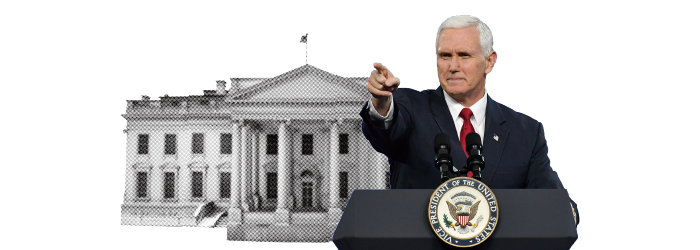
國際間具有政治目的的公開談話,通常代表著一國的形象,就算有利益衝突也不能說白,往往需要善用官方詞藻包裝,並塑造出訴求的正當性。對於霧裡看花的讀者,若能了解發言的語彙、和背後的脈絡,就能看懂字裡行間透露出的真實訊息。
文/ 白宮官方逐字稿
翻譯/ 中央社
PART I. 選什麼字,很重要
政治演說跟一般演說不同。一般演講必須簡明易懂,但政治演說中的每個字,總是會被外界放大解讀,故演說者可說是字字斟酌,保留理解空間。彭斯此篇演說的對象是中國,我們可以從字彙的使用次數,看出來美國對中國的貿易要求。
▍訴求:「自由、公平、對等」
Free (7次) , Fair (6次) , Reciprocal (5次)
...At President Trump's direction, we're also implementing tariffs on $250 billion in Chinese goods, with the highest tariffs specifically targeting the advanced industries that Beijing is trying to capture and control. And as the President has also made clear, we will levy even more tariffs, with the possibility of substantially more th an doubling that number, unless a fair and reciprocal deal is made.
...在川普總統指示下,我們也針對價值2500億美元的中國產品加徵關稅,最高額的關稅特別瞄準了北京試圖取得和掌控的先進產業。總統也明確表示,除非能和中國達成公平與對等的協議,我們還將課徵更多的關稅,甚至可能大幅提高一倍以上。
As President Trump has made clear, we don 't want China 's markets to suffer. In fact, we want them to thrive. But the Unit ed States wants Beijing to pursue trade policies that are free, fair, and reciprocal. And we will continue to stand and demand that they do.
正如川普總統所明示,我們不希望中國的市場遭殃。事實上,我們希望他們的市場繁榮。但是,美國希望北京尋求自由、公平和對等的貿易政策。我們將繼續堅持要求他們這樣做。
Reciprocal:魔鬼藏在翻譯裡
中美貿易的爭端之一,是中國對美國的不對等貿易。中國曾利用翻譯誤 差,將reciprocal解讀成「互惠」而非「對等」。如此,即使在美方得 利較少的狀態,仍符合「互惠」原則。
把「中共政權」和「中國」分開
彭斯的演說中,提到Rulers (中國的統治者)4次,Communist Party (中國共產黨) 18次,(Chinese) People (中國人民) 11次。
PART II. 塑造「美國是你的好朋友」形象
此次演說中,彭斯不尋常地用大量篇幅回顧中美關係歷史,並塑造美國一直一來都持友善態度的形象。
▍美國曾助中國保有主權
When China suffered through indignities and exploitations during her so-called "Century of Humiliation, " America refused to join in, and advocated the "Open Door" policy, so that we could have freer trade with China, and preserve their sovereignty.
當中國歷經屈辱與剝削的「百年國恥」之際,美國拒絕加入列強,主張「門戶開放」政策,如此一來我們能與中國自由貿易,保有他們的國家主權。
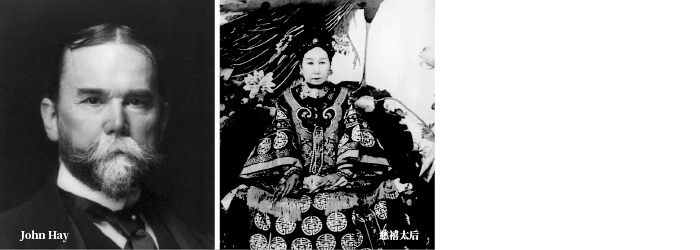
促成「門戶開放」政策的美國國務卿海約翰 vs 清末當權的慈禧太后
▍美國曾力保中國成為聯合國常任理事
When the Second World War arose, we stood together as allies in the fight against imperialism. And in that war's aftermath, America ensured that China became a charter member of the United Nations, and a great shaper of the post-war world.
隨著第二次世界大戰到來,我們身為盟友,為打擊帝國主義而並肩作戰。二戰之後,美國力保中國成為聯合國的常任理事國,成為戰後世界的一股重要影響力。
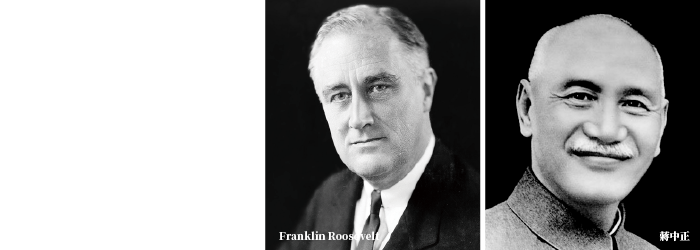
美國總統羅斯福在二戰結束前的開羅會議中與國民政府領袖蔣介石會談,力保中國戰後在聯合國中的地位。
▍如今美國只想和中國共同繁榮
The President has made clear, we want a constructive relationship with Beijing where our prosperity and security grow together, not apart. While Beijing has been moving further away from this vision, China's rulers can still change course and return to the spirit of reform and opening that characterize the beginning of this relationship decades ago.
川普總統已明確表示,我們希望與北京建立建設性關係,共同促進我們的繁榮與安全,而不是分道揚鑣。儘管北京一直在進一步偏離這個願景,中國領導層仍可以改變路線,回歸幾十年前這段關係開始時的改革開放精神。
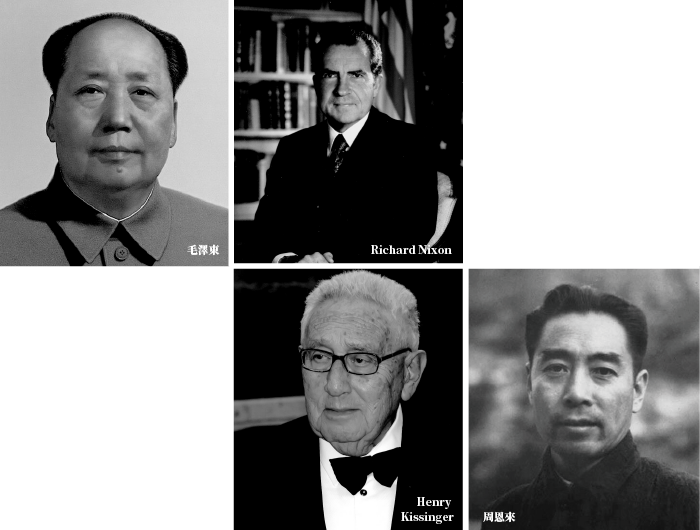
1972年尼克森總統訪中,使往後十多年中美關係進入密月期。此場會面由美國最具盛名之一的外交家Henry Kissinger促成,中國則由國務院總理周恩來代表會談。
The American people want nothing more; and the Chinese people deserve nothing less.
美國人民要的不多;而中國人民應得的也不該僅有如此。
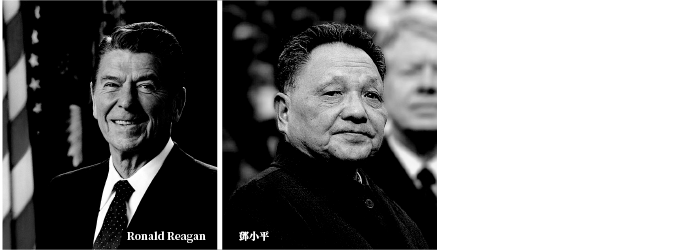
1980年代在雷根與鄧小平的領導下,中美關係達到高峰,但在1989六四事件爆發後冷凍。
PART III. 用你們的話,說給你們聽
彭斯此篇演說的邏輯基礎為「恩怨簡單二元化」,塑造「美國有恩於中國」形象,除此之外,更引用許多中共政策或格言向中國「溫情喊話」。
...And while Beijing still pays lip service to "reform and opening," Deng Xiaoping's famous policy now rings hollow.
...北京儘管口頭上仍然高唱「改革開放」,但鄧小平這個著名政策已經益發空洞。
...The great Chinese storyteller Lu Xun often lamented that his country, and he wrote, "has either looked down at foreigners as brutes, or up to them as saints," but never "as equals."
...偉大的中國作家魯迅經常感嘆他的國家,曾寫道「對於異族歷來只有兩樣稱呼,一樣是禽獸,一樣是聖上」,但從沒有說「他也同我們一樣的」。
...There is an ancient Chinese proverb that reads “, Men see only the present, but heaven sees the future.” As we go forward, let us pursue a future of peace and prosperity with resolve and faith.
...中國有句古語說:「人看眼前,天知未來。」在我們前進的道路上,讓我們以決心和信念尋求和平與繁榮的未來。
編輯/ 吳岱軒
收錄於英語島 2018年11月號
訂閱雜誌
